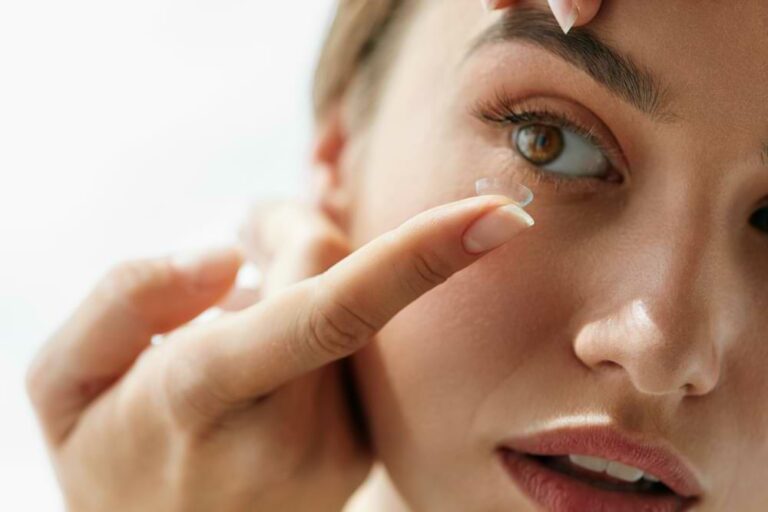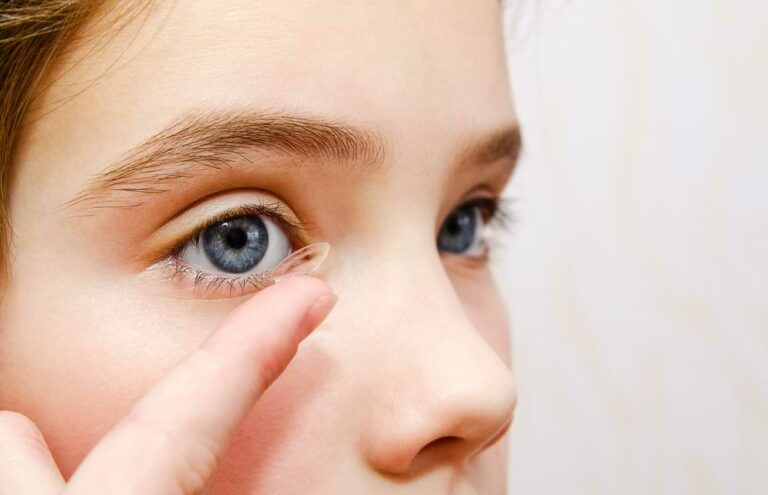
Ortho-K Lenses: 15 Frequently Asked Questions
To help you understand the opportunities now available with orthokeratology, we’ve put together a list of frequently asked questions that we often get from patients.

What is Macular Degeneration?
Macular degeneration is the leading cause of blindness in Australia. It is a progressive, degenerative disease that affects the macula – an area of the retina (the light-sensitive layer of the eye) which gives us our fine-detailed, central vision.
There Are Two Types Of Macular Degeneration:
Dry/non-proliferative macular degeneration affects approximately 90% of macular degeneration sufferers. Waste deposits (known as exudate) distort central vision. This is early onset Macular Degeneration.
Wet/proliferative macular degeneration affects approximately 10% of macular degeneration sufferers. This is a more advanced stage of MD, where new, fragile blood vessels grow in the macula region. These fragile blood vessels may then leak, causing blood to enter the retina and scar tissue to form. If this proliferative stage is left untreated, eventually a complete loss of vision will occur.
What Causes Macular Degeneration?
Smoking: Smokers are three to four times more likely to develop MD than non-smokers.
If you have any of the above risk factors, it is important to mention them to your optometrist. At Optometrist Parramatta, your experienced optometrist will screen you for macular degeneration.
How Does Macular Degeneration Affect My Eyes?
Macular Degeneration causes a progressive loss in central vision. As such, tasks requiring good central vision such as driving and reading will be affected, regardless of whether or not you are wearing corrective glasses or contact lenses. Furthermore, objects with straight edges such as doorways may look bent or distorted and colours may appear faded.
How Do I Know if I Have Macular Degeneration?
Often sufferers are unaware they have macular degeneration until they notice changes to their vision. As it is a progressive, degenerative condition that cannot be reversed, the best treatment is to keep up with your regular eye exams, as your optometrist may detect minor changes before you experience any symptoms. At Optometrist Parramatta, the full health check of the eye is done during our 360° Comprehensive Exam, which you can Book Here.
While this is recommended every three years in conjunction with yearly check-ups, any changes in your vision mean you are eligible to bring this exam forward.
Your optometrist will screen you for macular degeneration via several tests. If macular degeneration is detected, your optometrist may refer you to an ophthalmologist for additional testing.
Can Macular Degeneration Be Treated?
As yet, there is no cure for macular degeneration. In the case of wet macular degeneration, various laser or injection treatments aim to seal the leaking blood vessels and prevent new vessels from forming. However, once vision is lost it cannot be restored- which is what makes it a leading cause of blindness in Australia, and why is it so important to monitor for changes to your vision. The earlier MD is detected and treated, the more vision you are likely to retain.
Research into the effective treatment of macular degeneration is ongoing.
Remember, if you notice any sudden changes in your vision it is essential to seek medical attention immediately. The “wet” form of macular degeneration can progress very quickly and requires rapid treatment to save sight. An Amsler grid can also be used to self-monitor for changes in vision between appointments and is available free from Optometrist Parramatta.
If you’d like more information about macular degeneration, drop in or make an appointment today!

To help you understand the opportunities now available with orthokeratology, we’ve put together a list of frequently asked questions that we often get from patients.

Have you ever wondered if you’re cleaning and storing your Ortho-K lenses properly? Improper use of Ortho-K lens solutions for cleaning and storage may lead to serious eye infections.

With proper technique, inserting and removing Ortho-K lenses is not as intimidating as you might imagine. Book a consultation to learn more.

Learn about Ortho-K lens side effects and choose the best option for healthy eyes. Book a consultation today.

How does Ortho-K combat myopia and is an Ortho-K fitting right for your child? Learn more & book a consultation.

Discover how you or your child can achieve clear vision with Ortho-K lenses in Sydney. Book a 360 Eye Examination.